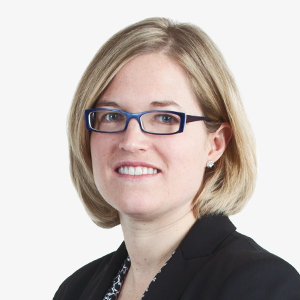Good health is driven by numerous factors, starting with well understood fundamentals like access to quality nutrition, clean water, bathroom facilities and basic medical services. COVID-19 has also brought into plain view what was known but not as well understood — there are many other aspects of life and commerce that are material contributors to good personal and community health outcomes, including workplace safety, product safety, and managing environmental hazards. Incentives can be misaligned, where on one side of the ledger healthcare is a business where more and sicker people can equate to more profit opportunity, and on the other where not investing in the welfare and safety of communities and workforces saves public and private dollars (in the near term). Focusing on what is just in terms of access to basic needs but also access to a clean, safe environment and workplace improves overall wellness and with it productivity and prosperity while reducing the social and economic burdens that come with unwell communities. This interview is with Ingrid Dyott, Managing Director and Portfolio Manager at Neuberger Berman, where we discuss the structural challenges to achieving a global basic level of wellness, and how companies both in and out of the broad medical industrial complex can contribute to achieving greater global health and what the economic and other incentives are for doing so.

Ingrid is a Managing Director at Neuberger Berman, where she joined in 1997. She is Co-Portfolio Manager of the Core Equity and Sustainable Equity strategies. Prior to joining the firm, she worked at the Council on Economic Priorities, a research firm specializing in corporate social and environmental analysis. Ingrid serves on the Board of the Arbor Brothers Foundation; a non-profit that funds and supports social entrepreneurs. She earned a BA from Bowdoin College and an MBA from Columbia University.
Selected Links on Medical Justice and Access to Healthcare
“Differences in Select Measures of Health Care Access, Utilization, and Financial Burden by Urbanicity, 2017″, Emily P. Terlizzi, MPH, Robin A. Cohen, PhD, National Health Statistics Reports
“Chartbook on Access to Health Care”, Agency for Healthcare Research and Quality
Health Equity Monitor Database, World Health Organization
“Tracking Universal Health Coverage: 2017 Global Monitoring Report” – World Health Organization
“Racism, Inequality, and Health Care for African Americans”, Jamila Taylor, The Century Foundation
Workplace Injury, Illness and Fatality Statistics, US Dept. of Labor Occupational Safety and Health Administration (OSHA)
“Recommendation of the Council on Consumer Product Safety”, Organization for Economic Cooperation and Development
“The Global Asthma Report, 2018”, Global Asthma Network

